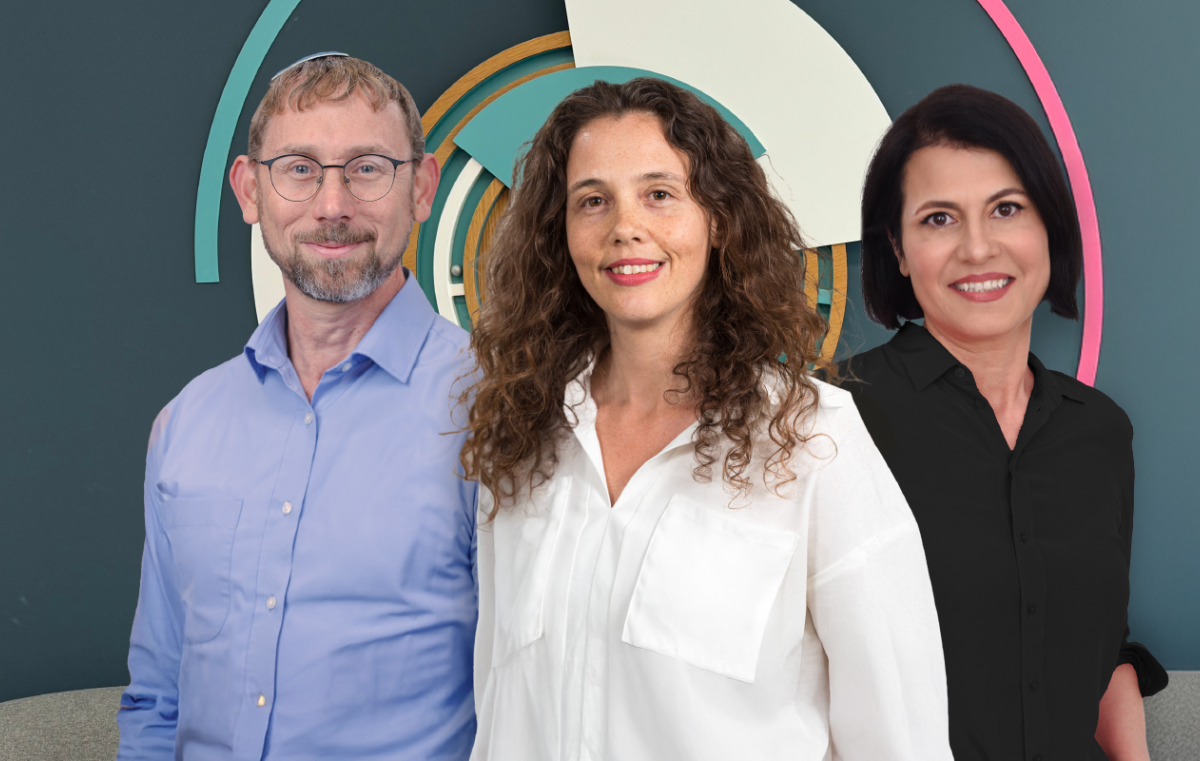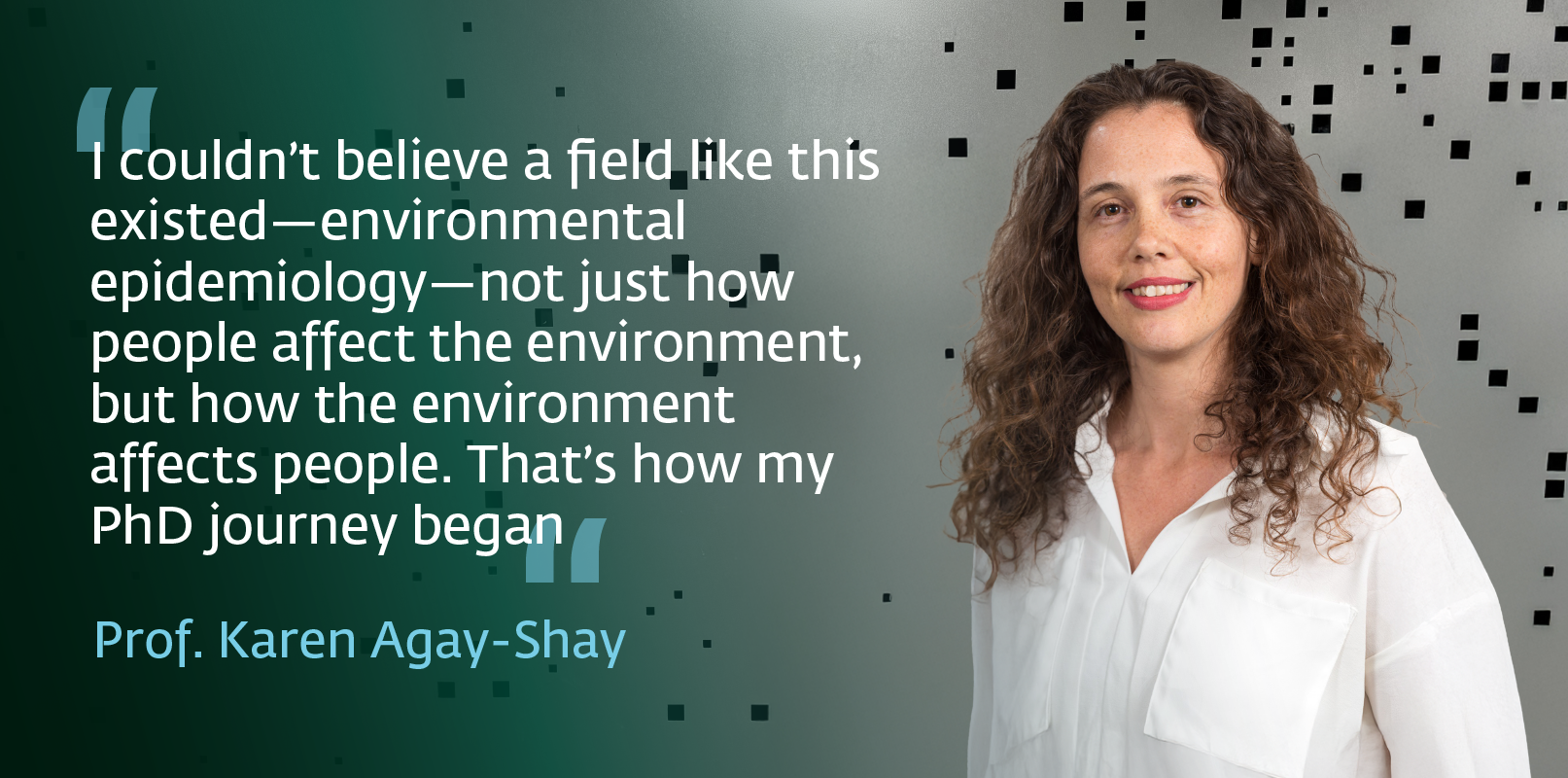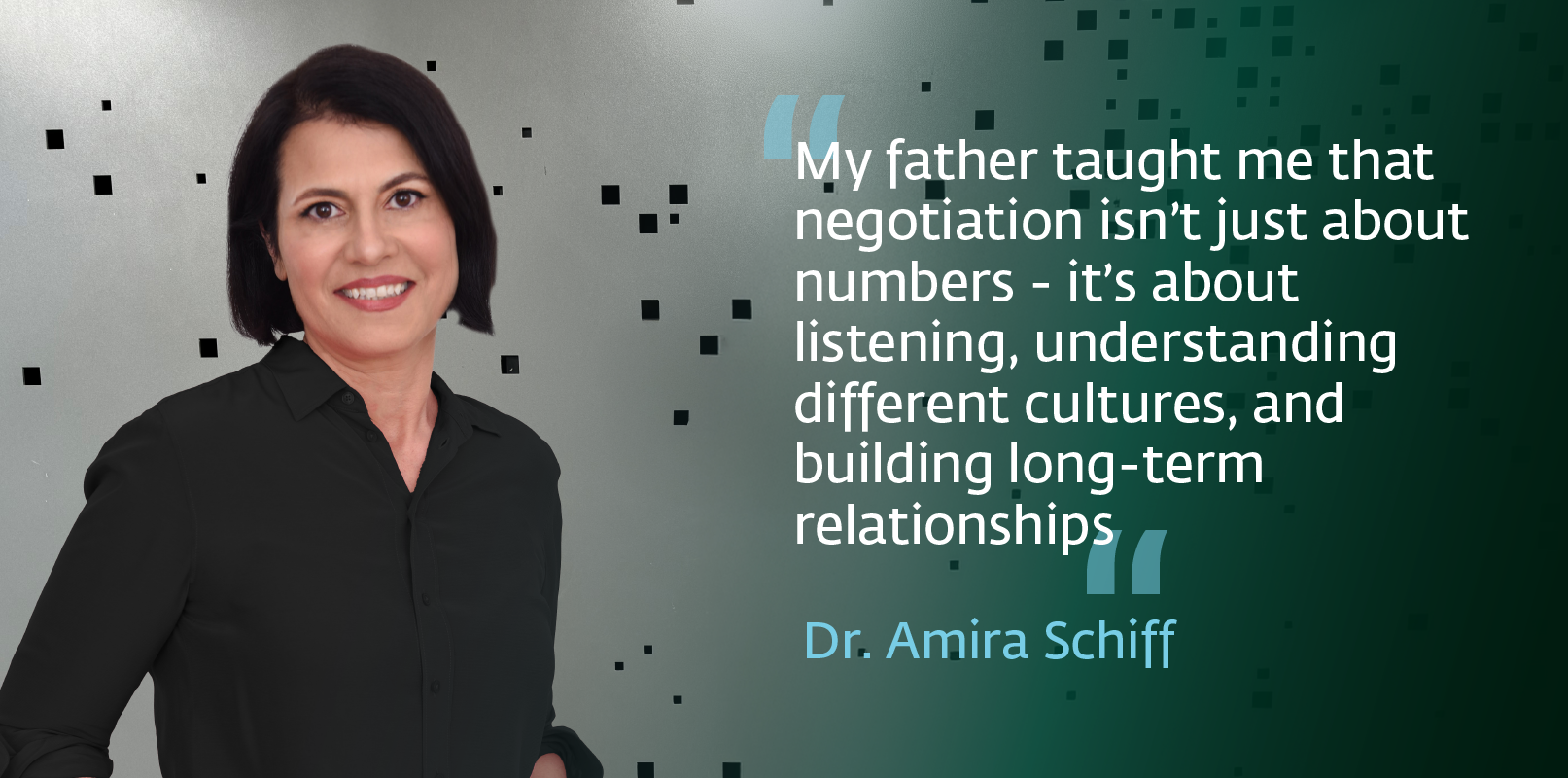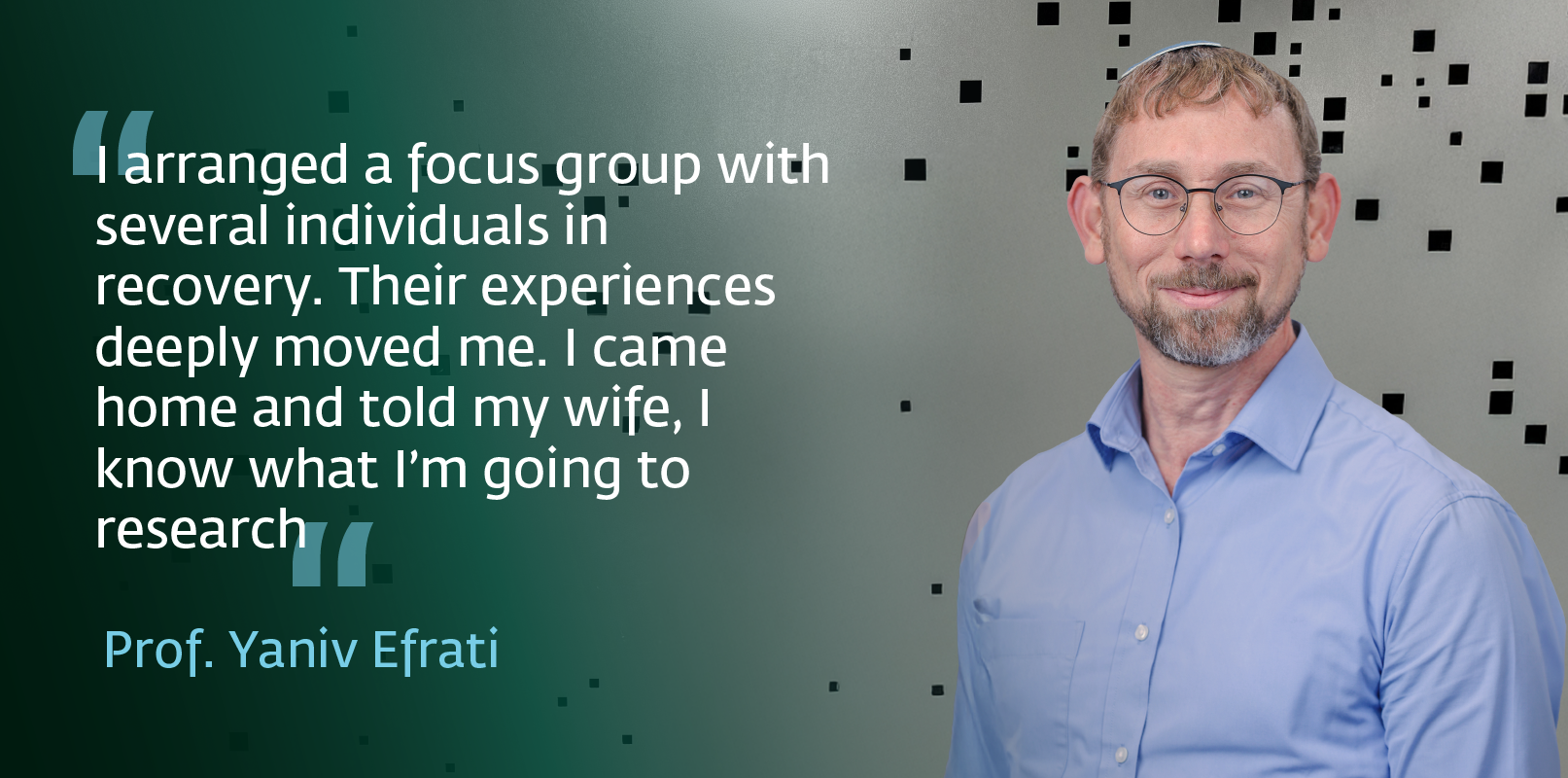Pests, Conflicts, and Addictions: The Journey to Academic Research
A curious child who loved mixing chemicals, a “citizen of the world” raised around a dinner table, and a teacher determined to make a difference—three Bar-Ilan researchers share the surprising journeys that led them to academia

“My PhD Took Me into a Whole New World”
Prof. Karen Agay-Shay – Environmental Epidemiologist, Faculty of Medicine
“I was working in industry and wanted to change direction,” recalls Prof. Karen Agay-Shay, then a master's graduate and now a researcher in environmental epidemiology. “The decision to return to academia came shortly after my son Ori was born. I was looking for a PhD topic—but I had no idea what I wanted to do. I wandered between professional conferences around the country, with my baby in a carrier.”
As a child, she was always curious—mixing materials, reading encyclopedias, and conducting experiments at home. “I grew up in a single-mother home from a low economic situation. I was a terrible student in elementary school. Only in high school did I begin to focus on biology and chemistry—and excelled.”

She went on to complete a double major in biology and environmental studies and earned a master’s in microbial ecology. “I was fascinated by the impact of humans on nature and how we could use bacteria to solve pollution problems. But I found the lab work boring. After finishing my master’s, I was offered a PhD, but I thought I was done with academia. My daughter Naama was born, and we moved to the Galilee. I began working in industry. After Ori was born, I knew I wanted to pivot.”
Today, Prof. Agay-Shay specializes in how environmental exposures affect physical and mental health—researching harmful exposures like air pollution and heatwaves, as well as the healing effects of green spaces and time in nature.
“I love the mystery in every research question,” she says. “I love building models, understanding what affects the patterns I’m seeing, learning new statistical tools, and solving problems with data. I also love mentoring my students—especially those who didn’t start at the top but reach incredible heights through curiosity, perseverance, and deep thinking.”
“Reality Never Stops Surprising Me”
Dr. Amira Schiff – Director of the Conflict Management, Resolution and Negotiation Program
As a child, Dr. Amira Schiff dreamed of being a global citizen. “My father was a businessman and industrialist, and our dinner table often hosted diplomats and executives from places like Japan, South Korea, and India. From him, I learned that negotiation isn’t just about numbers—it’s about listening, understanding different cultures, and building long-term relationships,” she shares.
“I saw him navigating formal dinners, combining Japanese politeness with Israeli creativity, reading between the lines, and noticing small gestures that revealed the other side’s stance. He made people feel understood. That fascinated me. I wanted to understand how people bridge cultural divides and build global partnerships.”
She studied international relations, and during her PhD, focused on negotiation and conflict resolution. “I was drawn to it because we live in a region of entrenched conflict, a place often called a graveyard for peace initiatives. I wanted to understand what brings long-time adversaries to the negotiation table.”

Her doctoral research focused on pre-negotiation processes, such as those behind the Oslo Accords and the failed Cyprus negotiations in the early 2000s. Later, she explored successful peace efforts, including the resolution between Indonesia and the Aceh separatist movement—which ended a decades-long conflict in just seven months.
Now head of Bar-Ilan’s Conflict Management, Resolution and Negotiation program, Dr. Schiff researches international mediation, especially in crisis that risk escalating into war. “One fascinating case I’m exploring is Qatar’s role as a mediator between Israel and Hamas. The idea of an unbiased mediator is hotly debated, and Qatar’s involvement challenges many assumptions in the field,” she explains.
“I love what I do. Conflict resolution is an ever-evolving field, shaped by real-time developments in global politics. The reality—and the data—never stop surprising me.”
“I Came Home and Told My Wife: I Know What I’m Going to Research”
Prof. Yaniv Efrati – Researcher in Adolescent Addictions, Faculty of Education
Prof. Yaniv Efrati always wanted to be a teacher. And for a while, he was. “I taught in high school for nine years as a homeroom teacher and educational counselor,” says Efrati, now a researcher and father of eight. “I loved working with the students, so I pursued a master’s in educational counseling. Academia wasn’t even on my radar. But after completing my thesis with honors, moving on to a PhD felt natural.”
Efrati found his research niche—addiction—somewhat by accident. “During my postdoc, I wanted to understand the world of people struggling with addiction, so I arranged a focus group with several individuals in recovery. Their experiences deeply moved me. I came home and told my wife, ‘I know what I’m going to research.’”

At first, he focused on recovery processes. A decade later, now a lecturer and researcher, he opened a lab focused on teen addictions. “This research helps develop prevention and intervention programs and supports parents and educators in navigating the challenges teens face.”
Outside the lab, Prof. Efrati is devoted to training Israel’s next generation of educators. He heads the General Education program at the Faculty of Education, teaches in the master's program, and supervises doctoral candidates in the Educational Leadership and Management track, with a focus on informal education and youth work.
“I love engaging with my students. I always attend open days and give a short talk about my research to give a taste of the field. And it’s so rewarding when I later see those same people sitting in my classes.”